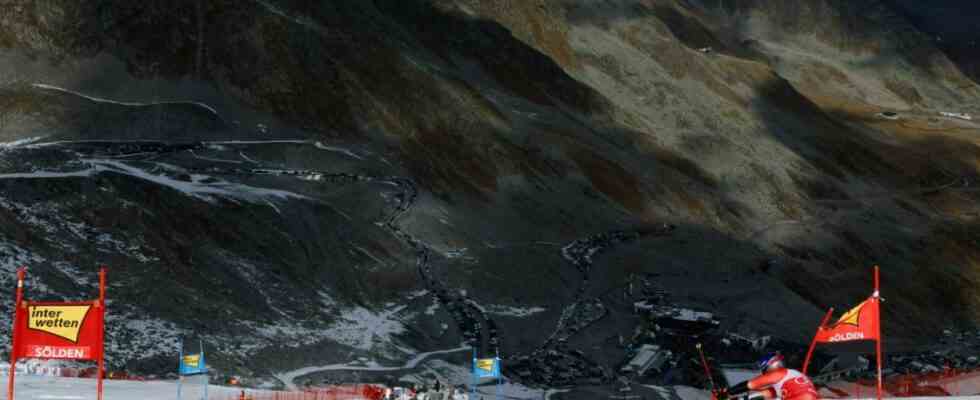The so-called Team Captains Meeting, at which the jury of the World Ski and Snowboard Federation (FIS) and the trainers of the national federations meet before each World Cup, has been open to all local reporters since this winter. Markus Waldner, the FIS race director for the men’s alpine races, did not choose this plenum on Saturday in Sölden by chance to place his message. And it was as emphatic as the style in which the South Tyrolean delivered his words.
The fact that the two men’s descents on the new glacier slope in Zermatt/Cervinia had to be canceled without replacement this weekend was not a question of bad luck, said Waldner. The local organizers are not to blame either. It was simply a mistake on the part of those responsible to plant a four-kilometer high-speed drive on the calendar – at a time when it is not even cold enough at 2800 meters to start the snow cannons and let snow snow across the scree landscape ( which is why the women’s descents in two weeks are wobbling). Climate change is now real, said Waldner, “we have to respect these signals.” That sounded as banal as it was remarkable.
Because this message also had an effect, probably not entirely by chance, on everyone who had pushed this project. And that, without Waldner saying so, was above all a man: Johan Eliasch. The new Fis President had also admitted that the day before, it sounded like this: Alpine sports have to fill the gaps in the calendar after the early start in Sölden, that creates more attention and, at some point and somehow, more money. Eliasch was obviously so obsessed with this “iconic” autumn project on the Matterhorn that all concerns behind it faded: the worry of pushing through such a risk after a hot summer, without a test event, despite the criticism of many athletes. Waldner’s word on Saturday seemed like a department head publicly explaining to his CEO how cars are produced and sold.
The dissatisfaction that organized winter sports are carrying around with them has seldom spilled out so blatantly. You can confidently put that as another stone in the great mosaic that has emerged since Eliasch took office around a year and a half ago. Whether it’s the way the Swede wants to grab TV and sponsorship rights, his controversial re-election last summer, expansion plans for races in China and the US (whose market Alpines have never been able to conquer). As if winter could be sold like a global series, not for what it is: a big sport in small mountainous countries where the snow is becoming less and less reliable.
Waldner’s message sounded even more remarkable when one considers how Eliasch is usually supposed to taunt those who disagree with him. In any case, it was not very convincing how the President countered this impression in Sölden. During his first months at Fis, he got to know a great workforce, he said; If you continue to work so well together, you can achieve great things. Togetherness, unity – these are ciphers that are often used in world sport for: Either you follow me, or there will be fire. It will be interesting to see what all this will mean in the future, also for the courageous race director from South Tyrol.

